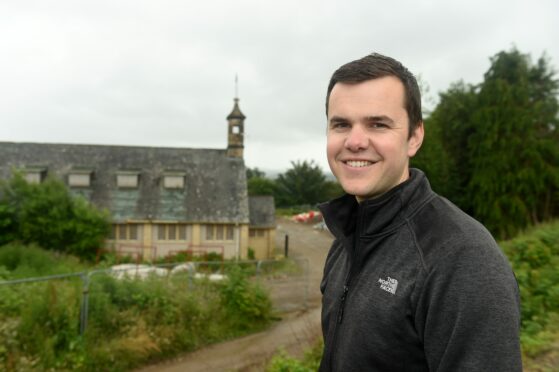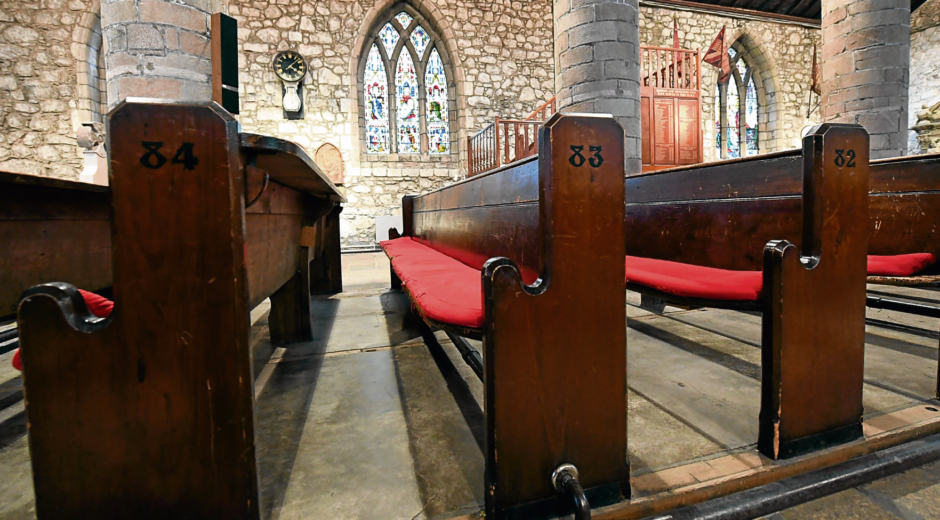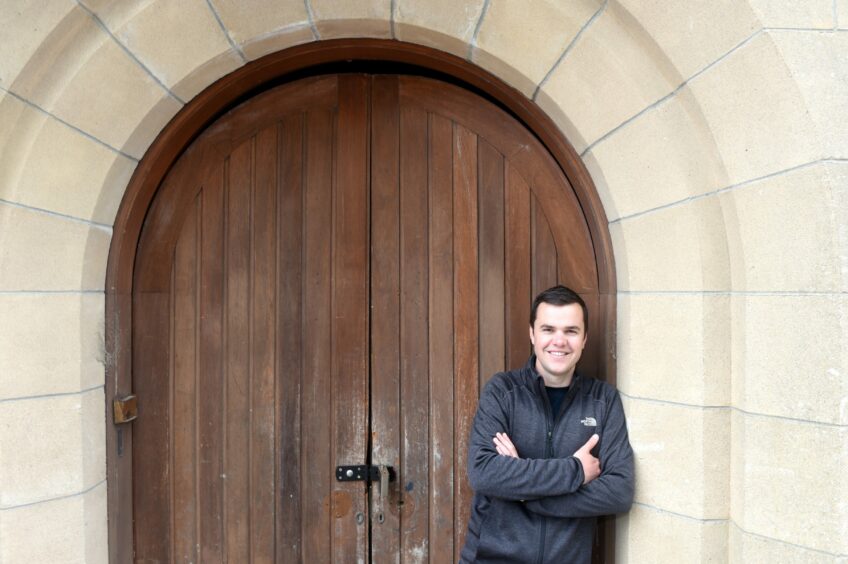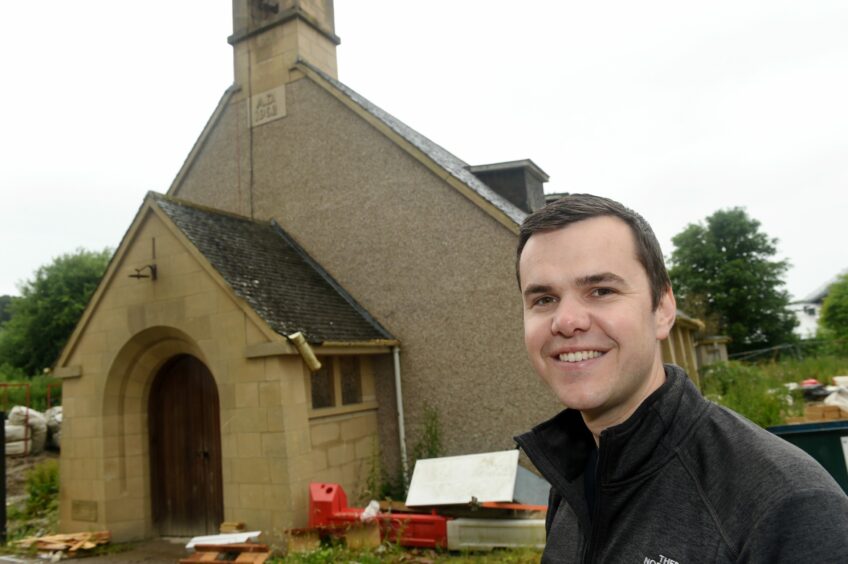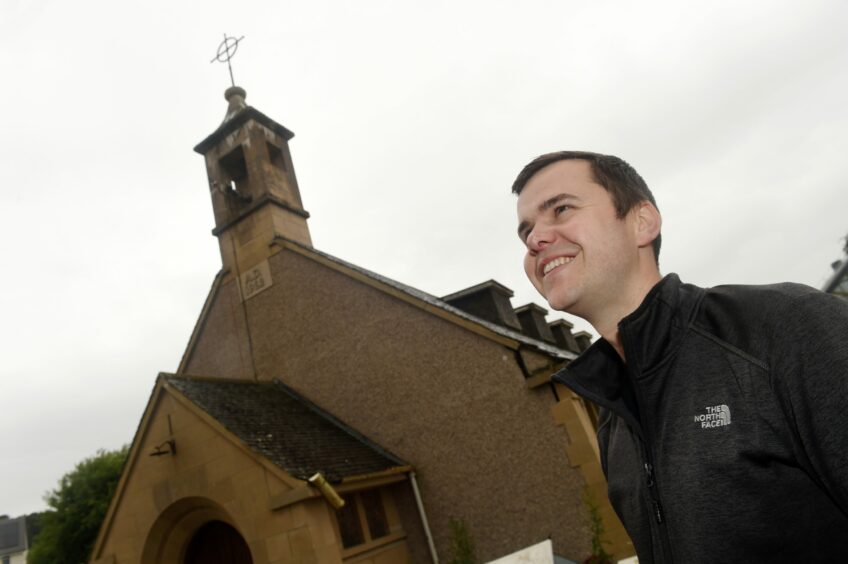The decline in Christianity in Scotland and all that comes with it has been well documented over the passing years.
Earlier this year The Church of Scotland announced that hundreds of churches will have to close, following a report that about 60,000 people worship in person on a Sunday, compared to 88,000 pre-pandemic.
According to 2021 numbers, the church has 283,600 members – down from a peak of 1.3 million in the late 1950s.
The average age of those attending church is 62, and the vast majority of ministers are over the age of 50.
Perhaps there is a different story to be told however, whereby there is a need for an altogether more modern church.
We spoke with two men of the cloth to hear what path they think is the best for Christianity to take in Scotland to ensure its long-term future.
Here’s what they had to say.
Inverness pastor: ‘The pandemic reminded us that we are not in control’
Pete Rennie was set to study management and economics at university, before realising he was destined for a different way of life.
The 36 year old was ordained when he was 24 years old, and now lives in Inverness with his wife, Anne, who is a GP, and the couple’s young daughter.
He studied theology at Aberdeen University and graduated from Bible College in 2011.
Pete has gone on found Living Hope Inverness which now boasts 65 adults and 20 children in the congregation.
It originally started out with 12 adults and four children when it was first launched in 2015.
‘People should be making up their own mind about Jesus’ says pastor, who once wanted to be a footballer
Pete believes in allowing people to make their own mind up about Jesus, and the congregation will eventually worship in the former Craig Dunain Hospital Chapel , which was gifted to them by Robertson Group who are behind the redevelopment of the site.
For now, the congregation meets at Kingsview Church Centre.
“I wanted to be a footballer when I was a teenager, I’m still waiting for my trial letter from Caley,” said Pete.
“I realised that maybe that dream wasn’t going to happen, and I decided I wanted to study management and economics at university.”
Pete went on to take a year out, and was involved with a Church of Scotland initiative.
He was asked if he had ever considered becoming a minister, to which he said a firm no and went on to Glasgow University.
“I realised what motivated me had changed, and that there was important stuff in life then how much money I made,” said Pete.
Pete went on to take a new path, and tried to tackle indifference towards the church head on by launching Living Hope.
‘I wanted, for lack of a better phrase, normal people’
“A lot of people reject Christianity and Jesus, without understanding who he is,” said Pete.
“I wanted, for want of a better phrase, normal people to come along to Living Hope.
“People who did not have a church background, so they could explore in a safe place.
“All over Scotland, church buildings are closing; a lot of people in the Highlands particularly have been put off church by previous baggage.
“Empty tradition instead of living faith; we work based on timeless truth in a timely manner.
“We are ancient in what we believe, but we communicate it in a way which is relevant.”
Where are all the faithful? Could the answer be online instead of brick and mortar churches?
Pete does not believe that a revival will be seen on a scale which changes society, but there are still areas of growth.
“I don’t think church is dying when some are really thriving and growing,” he said.
“Having a website is really important, that is the front door of your church.
“You have to think where people are, and the answer is online.
“My grandparents experienced revival, but a good proportion of the next generation went to church who did not necessarily believe.
“We now have a generation who are interested and fascinated, because they have never been told about Christianity before.
“The pandemic remind us we are not in control and the reality of death was all over the news, yet was something we didn’t really talk about.
“We’ve always been so focused on the physical, but to be human involves the spiritual.”
Island-raised vicar says he has faith in a Christian revival
Malcolm Macdonald, who grew up on the Isle of Gigha and is now a vicar down south, believes there is a potential for a Christian revival, and has written a book exploring the revival on the islands in the 1950s.
He still has the distinctive island lilt, despite the fact he lived on the Isle of Gigha several decades ago.
The vicar grew up on the now community-owned isle, which is the most southerly Hebridean island and only seven miles long.
Now a vicar in Essex, he has long questioned whether a Christian revival is possible in Scotland.
“My family lived on Gigha for centuries, I left when I was 11 and went to live in Forres after we swapped farming for ministry,” said Malcolm.
“I returned to the islands during my sabbatical and spoke to people in Lewis about the revival of 1949.
“It was a grass roots movement, and ultimately led to a powerful spiritual awakening.”
Malcolm was ordained 18 years ago, and experienced a call to ministry when he was a teenager.
Impact of the pandemic and lockdown was ‘almost biblical’
He went to university in St Andrew’s, and believes people have been “dechurched” as a result of their experiences.
“I’ve noticed in my own churches, growth is up by about 30 percent,” said Malcolm.
“We’re seeing good things, but we’re not seeing what we could see.
“The pandemic was very interesting, lockdown was almost in biblical language – like going into exile.
“It made people think of mortality and what their priorities actually are.
“It awakened questions in people’s minds, sometimes I feel like the church didn’t quite rise in the way it could have done.
“The church was not seen as one of the main places where people wanted to express themselves.
“It has become irrelevant to a lot of people in secular Britain; we need to wake up and take this seriously.
“If a church building was to close, it could go unnoticed which I think is very sad.
“Churches should be rooted in communities.”
‘The church hasn’t represented God that well’
It’s not all doom and gloom however, and Malcolm is hopeful that a revival could still happen in the future.
“People see this version of Christianity that they don’t want, the church hasn’t represented God that well,” he said.
“It needs to do a better job of representing Jesus to the world; with the climate we’re in today, we do need faith in society.“
You can’t replace it with wellbeing, faith has been and continues to be a real anchor.
“Sometimes church gets too focused on the churchy things, it forgets the simple core message that we’ve got.
“When we come back to that, it can touch society.
“There are so many chronic issues right now, from mental health to addiction.
“I think these problems could be massively impacted by people reconnecting with God.
“We need to find better ways of connecting with people, even the language is out of date.
“People can view church as a religious club, and think well I’m not in that club.
“But you don’t need to be religious to come to church, you will always be made welcome.”
